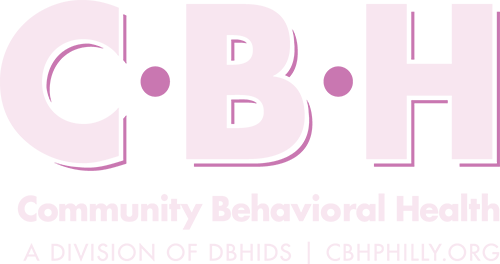Member Rights and Responsibilities
Community Behavioral Health (CBH) and its network of providers do not discriminate against members based on race, sex, religion, national origin, disability, age, sexual orientation, gender identity, or any other basis prohibited by law.
As a CBH member, you have the following rights and responsibilities.
Member Rights
As members of CBH, you have certain rights. They are listed below, and we invite you to call us if you need help understanding this information.
1. Dignity and Privacy
Each Member is guaranteed the right to be treated by CBH staff and network providers with respect and recognition of their dignity, right to privacy, and right to confidentiality.
2. Information Disclosure
Each Member is guaranteed the right to receive information about CBH, our policies, procedures, services, practitioners, providers and their rights and responsibilities. Such information should be easy for Members to locate and presented in a way that is easy to understand.
3. Decision Participation
Each Member is guaranteed the right to participate with their providers in making decisions regarding their behavioral health care, including choice of CBH Provider, and to involve family members or other chosen caretakers in such decisions. Members can be a part of their treatment teams by asking questions and getting answers before and during treatment.
4. Emergency Treatment
Each Member is guaranteed the right to necessary emergency services from any provider, regardless of CBH’s approval.
5. Available Treatment Options Disclosure
Each Member is guaranteed the right to candidly discuss and receive information from providers, on the appropriate or medically necessary treatment options for their conditions, regardless of cost or benefit coverage. Discussions and information from providers should be clear and easy to understand and without any interference from CBH.
6. Treatment Refusal
Each Member, as part of making decisions regarding their care, is guaranteed the right to refuse treatment (unless so required as involuntary treatment under Pennsylvania’s Mental Health Procedures Act) or change providers. You have the right, under these circumstances, to get an explanation of what may happen if you do not get treatment.
7. Confidentiality
Each Member is guaranteed the right to confidentiality regarding their personal information and records. CBH is bound by law to respect and protect the privacy of its Members. See CBH’s Notice of Privacy Practices for more information.
8. Copy of Medical Records
Each Member is guaranteed the right to request and receive a copy of their medical records maintained at CBH, and to request they be amended or corrected. See CBH’s Notice of Privacy Practices for more information.
9. Second Opinion
Each Member is guaranteed the right to request a second opinion from a qualified behavioral health care professional within CBH’s network. CBH Member Services will provide options for requesting such an opinion.
10. Grievance Filing
Each Member is guaranteed the right to file a grievance if they disagree with a denial, approval, change, or medical necessity decisions made by CBH. See CBH’s Complaints, Grievances, and Fair Hearings page for more information.
11. Complaint Filing
Each Member is guaranteed the right to file a complaint when unhappy with CBH or a provider about care or treatment. See CBH’s Complaints, Grievances, and Fair Hearings page for more information.
12. Fair Hearing Request
Each Member is guaranteed the right to request a Fair Hearing from the PA Department of Human Services if they are unhappy about or disagree with a CBH action. See CBH’s Complaints, Grievances, and Fair Hearings page for more information.
13. Freedom from Restraint or Seclusion
Each Member is guaranteed the right to be free of any restraint or seclusion used as a means of force, discipline, convenience, or retaliation.
14. Freedom from Religious Persecution
Each Member is guaranteed the right to receive services regardless of a provider’s moral or religious objections. CBH will provide information on and facilitate all applicable services.
15. Free Exercise of Rights
Each Member is guaranteed the ability to freely exercise their rights without it negatively effecting the way they are treated by CBH, its providers, or the PA Department of Human Services.
16. Plan for the Future
Each Member is guaranteed the right to create advance directives. See CBH’s Mental Health Advance Directives for more information.
17. Rights and Responsibilities Recommendations
Each Member is guaranteed the right to make recommendations regarding CBH’s Member Rights and Responsibilities Policy.
Member Responsibilities
CBH and CBH providers expect to be treated fairly, with the same dignity and respect you would want for yourself. Each CBH Member is responsible for:
- Honestly and completely providing as much information as they can that is needed by CBH and their providers in order to provide care;
- Following all instructions for care that they have agreed to with their providers including instructions on prescribed medications, alerting providers of any resulting problems, and informing providers of all current medications, including over-the-counter medicines, vitamins, and natural remedies;
- Understanding their health problems, being present and involved in all health care and treatment decisions, including working with their providers to create, carry out, and follow through with treatment plans and goals to the degree possible;
- Informing providers of any necessities, disagreements, or confusion regarding treatment;
- Keeping all CBH and provider appointments;
- Making the County Assistance Office, providers, and CBH aware of any changes to your personal information (e.g., address, phone number);
- Learning about CBH coverage, including all covered and non-covered benefits and limits;
- Working with only CBH network providers unless CBH approves an out-of-network provider;
- Respecting all CBH and provider patients, staff, volunteers, and associates; and
- Reporting any suspected fraud or abuse to the CBH Compliance Hotline at 1-800-229-3050, via email at cbh.compliancehotline@phila.gov, or through the PA Department of Human Services.Related Forms
Consent to Mental Health Care
Children under 14 years of age must have their parent’s or legal guardian’s permission to get mental health care. Children 14 years or older do not need their parent’s, or legal guardian’s, permission to get mental health care. All children can get help for alcohol or drug problems without their parent’s or legal guardian’s permission. They can consent to mental health care and have the right to decide who can see their records if they consented to the mental health care. In addition, a parent or legal guardian can consent to mental health care for a child who is 14 years old or older, but under 18 years of age.
It is important for everyone that supports a child to work together and be part of the planning for the child’s care. Everyone that supports a child should, whenever possible, share information necessary for the child’s treatment.
The chart below explains who can consent to treatment.
If the Child is
Then They
Under 14 years of age
Must have parent’s or legal guardian’s permission to get mental health care
14 years of age or older
Can get mental health care without parent’s or legal guardian’s permission
Any age
Can get help for substance use disorder without parent’s or legal guardian’s permission
To learn more about who can consent to treatment, you can call CBH Member Services at 1-888-545-2600. Sometimes it is hard to understand that a child has privacy rights and can consent to mental health care. CBH can help you better understand these rights so that you can provide the best support for your child that you can.
Billing Information
Providers in CBH’s Network may not bill you for services that CBH covers. Even if your provider has not received payment or the full amount of his or her charge from CBH, the provider may not bill you. This is called balance billing.
When Can a Provider Bill Me?
Providers may bill you if:
- You received services from an out-of-network provider without approval from CBH and the provider told you before you received the service that the service would not be covered, and you agreed to pay for the service;
- You received services that are not covered by CBH and the provider told you before you received the service that the service would not be covered, and you agreed to pay for the service;
- You received a service from a provider that is not enrolled in the Medical Assistance Program.
What Do I Do If I Get a Bill?
If you get a bill from a CBH Network Provider and you think the provider should not have billed you, you can contact CBH Member Services.
If you get a bill from a provider for one of the above reasons that a provider is allowed to bill you, you should pay the bill or call the provider.
Third-Party Liability
You may have Medicare or other health insurance. Medicare and your other health insurance is your primary insurance. This other insurance is known as Third Party Liability (TPL). Having other insurance does not affect your Medical Assistance eligibility. In most cases, your Medicare or other insurance will pay your service provider before CBH pays. CBH can only be billed for the amount that your Medicare or other health insurance does not pay.
You must tell both your CAO and CBH Member Services if you have Medicare or other health insurance. When you go to a provider or to a pharmacy it is helpful to show the provider or pharmacy your Medicare card and your ACCESS card. This helps make sure your health care bills are paid.
Coordination of Benefits
If you have Medicare, and the service or other care you need is covered by Medicare, you can get care from any Medicare provider you pick. The provider does not have to be in CBH’s Network. You also do not have to get prior authorization from CBH. CBH will work with Medicare to decide if it needs to pay the provider after Medicare pays first, if the provider is enrolled in the Medical Assistance Program.
If you need a service that is not covered by Medicare but is covered by CBH, you must get the service from a CBH network provider. All CBH rules, such as prior authorization and specialist referrals, apply to these services.
If you do not have Medicare but you have other health insurance and you need a service or other care that is covered by your other insurance, you must get the service from a provider that is in both the network of your other insurance and CBH’s network. You need to follow the rules of your other insurance and CBH, such as prior authorization and specialist referrals. CBH will work with your other insurance to decide if it needs to pay for the services after your other insurance pays the provider first.
If you need a service that is not covered by your other insurance, you must get the services from a CBH network provider. All CBH rules, such as prior authorization and specialist referrals, apply to these services.
Reporting Fraud and Abuse
How Do You Report Member Fraud or Abuse?
If you think that someone is using your or another member’s ACCESS card to get services, equipment, or medicines, is forging or changing their prescriptions, or is getting services they do not need, you can call the CBH Fraud and Abuse Hotline to give CBH this information. You may also report this information to the Department of Human Services Fraud and Abuse Reporting Hotline.
How Do You Report Provider Fraud or Abuse?
Provider fraud is when a provider bills for services, equipment, or medicines you did not get or bills for a different service than the service you received. Billing for the same service more than once or changing the date of the service are also examples of provider fraud. To report provider fraud you can call the CBH Fraud and Abuse Hotline. You may also report this information to the Department of Human Services Fraud and Abuse Reporting Hotline.






